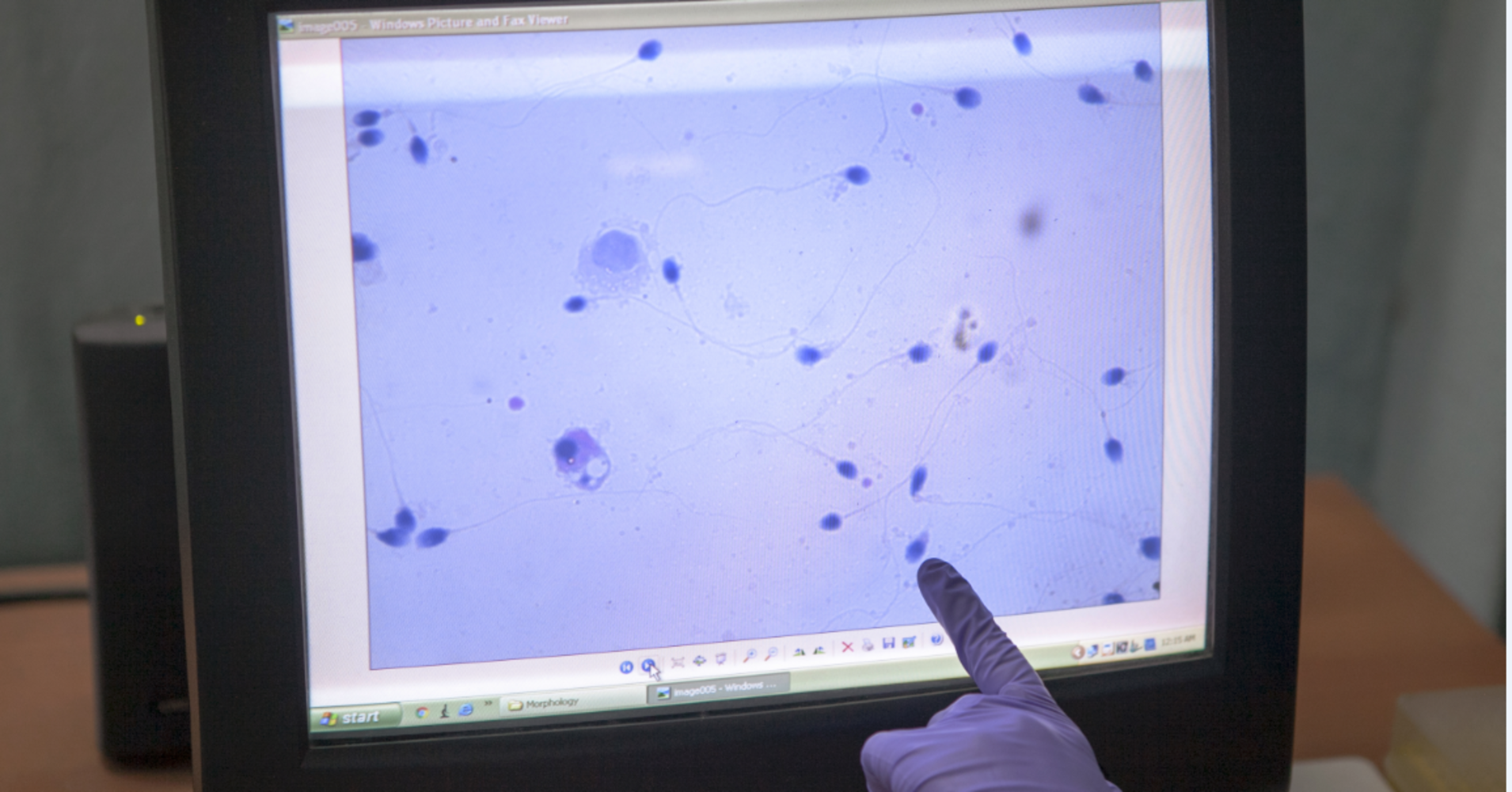
Forget spit. Some companies are betting men will be willing to send them another, perhaps more personal, piece of their genetic code: sperm.
Most men who freeze their sperm are likely to or are at risk of becoming infertile, including people about to start chemotherapy, get a vasectomy or are members of the military, police officers and firefighters.
They typically consult with a doctor first. If they decide to go through with it, the doctor hands them a cup and escorts them to a room where they can collect. The process can be more clinical than comfortable.
Khaled Kteily, founder of Legacy, said he first thought about sperm freezing four years ago when a spilled cup of hot tea hospitalized him with second degree burns. The tea “thankfully” landed on his thigh and not “elsewhere.” It got him thinking about how even though he didn’t want kids now, he does want them in the future.
Then one of his friends, who was 30 at the time, found out he had cancer and needed to freeze his sperm immediately before starting chemotherapy. The whole process cost about $ 1,000. That got Kteily thinking about what would happen if you could make it less expensive.
“If you could freeze it, why not?” he said.
Legacy plays with this idea. The homepage of its website reads, “Protect your most valuable assets.” Dadi’s homepage says, “Stop the clock start your future.”
Legacy and another start-up, Dadi, sell kits online. Men receive them within a day. They ejaculate into the cup and mix the semen with a preservative solution. They put everything back in the box and ship it back to the lab where it’s then analyzed and frozen.
Both companies send patients results. Neither requires patients to connect with a doctor.
Legacy has patients fill out a questionnaire so it can give them recommendations. When people get results outside of the normal range, Legacy offers to connect them to a genetic counselor who doubles as a fertility specialist. Dadi does not offer to connect “customers” to doctors.
Mills, the urologist, said he would love it if men got their sperm analyzed before they started thinking about kids instead of after they have spent years trying and failing. However, he worries people will be misled about their chances to conceive as they age or the costs and risks that come with sperm banking.
Men don’t have a rigid biological clock to conceive like women do. Studies have shown sperm does lose some quality as men age, but most of the declines come when men are in their 60s or 70s, said Dr. Jim Dupree, assistant professor in the department of urology at University of Michigan in Ann Arbor.
“To my knowledge, I have not seen any meaningful data saying a man in his 30s has significantly worse sperm than a man in his 20s,” he said.
Freezing sperm can cost hundreds or thousands of dollars, depending on how long it’s stored.
Legacy offers three different options, with the least expensive costing $ 350 for one deposit and short-term storage at $ 20 per month and the most expensive costing $ 5,000 for three deposits and 10 years of storage. Dadi sells its kit for $ 99 and storage for $ 9.99 a month or $ 99.99 annually.
Once men want to thaw their sperm, they may have to pay tens of thousands of dollars to actually use it since they can’t just use it the old fashioned way.
Doctors can try inserting the sperm into a woman’s uterus, a process known as IUI, or manually combining it with a woman’s eggs, or IVF. More likely, frozen sperm is used for IVF, Mills said, which can cost more than $ 10,000 per attempt.
“It’s cheap to bank sperm, whatever sperm cryopreservation tool you use, whether traditional or direct-to-consumer at-home kits,” Dr. Mills said. “That becomes a rounding error in the whole fertility equation.”
Dadi CEO Tom Smith says the goal is to start the conversation. His company sends men videos of their sperm to “humanize and normalize” it.
“Infertility is not a women’s issue when looking at the data,” he said. “For us, we’re trying to educate that insight and promote conversation.”
